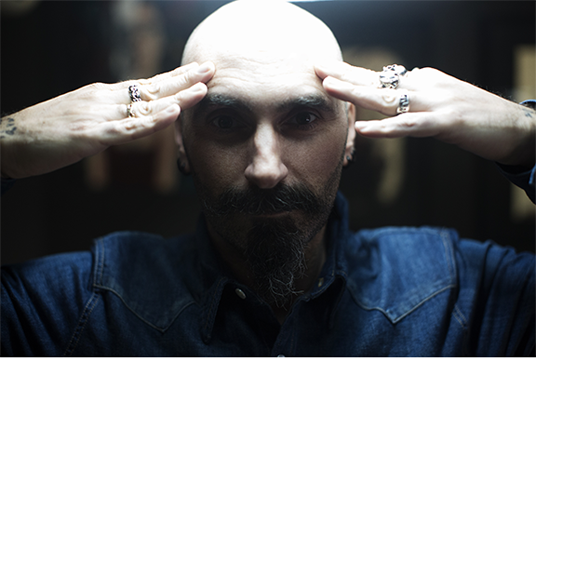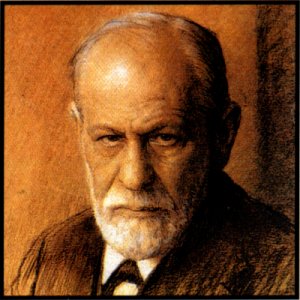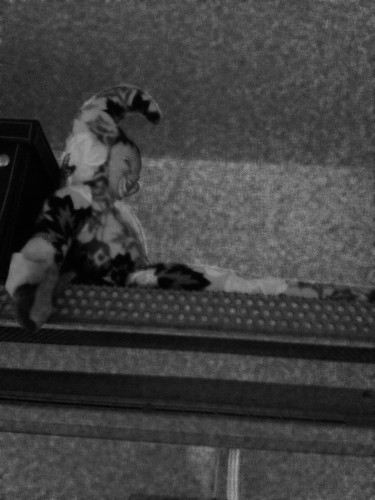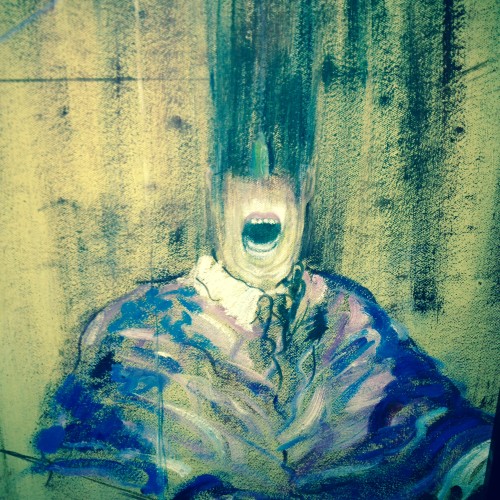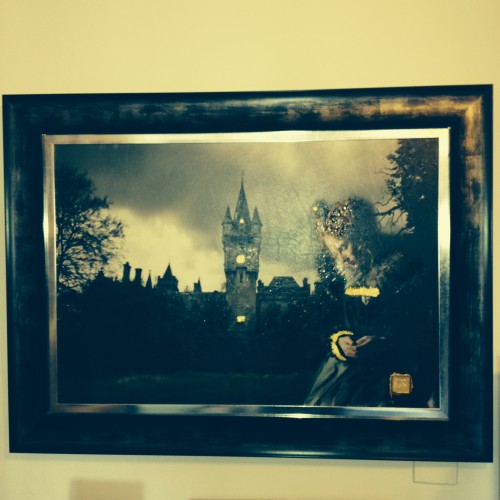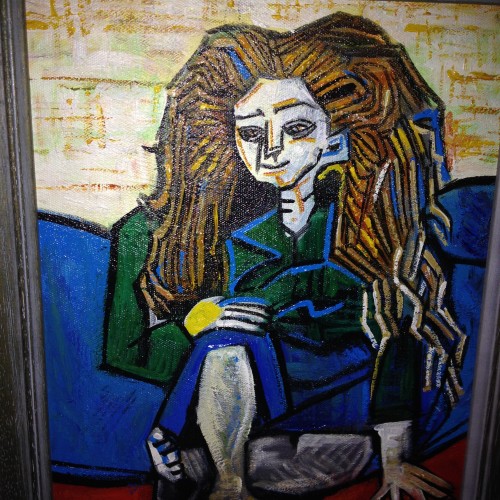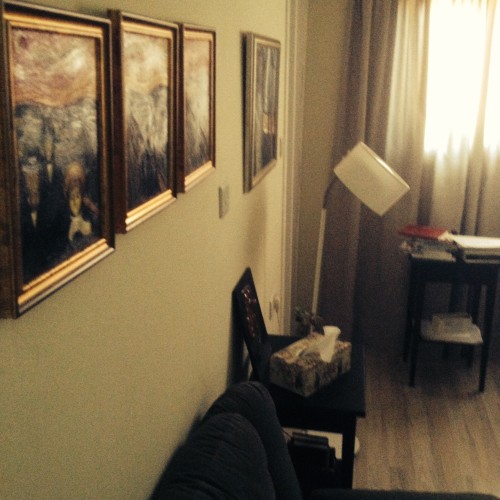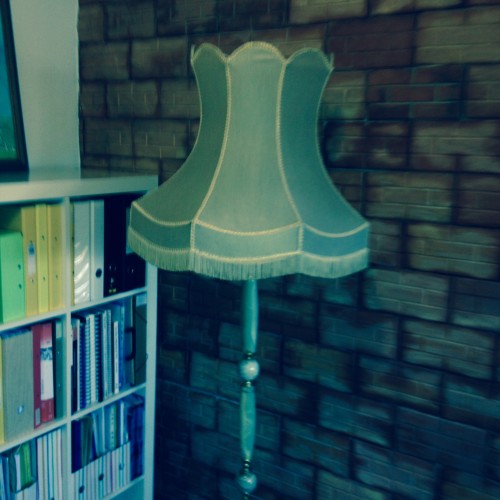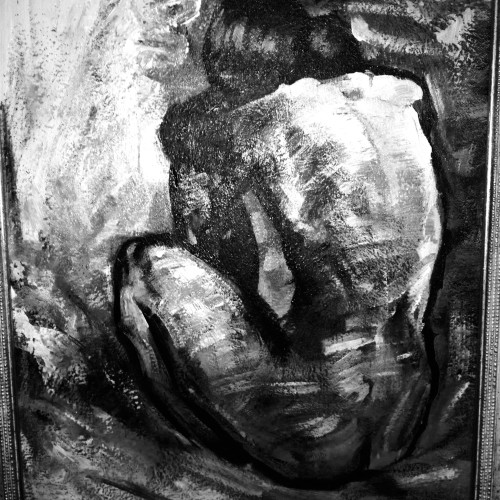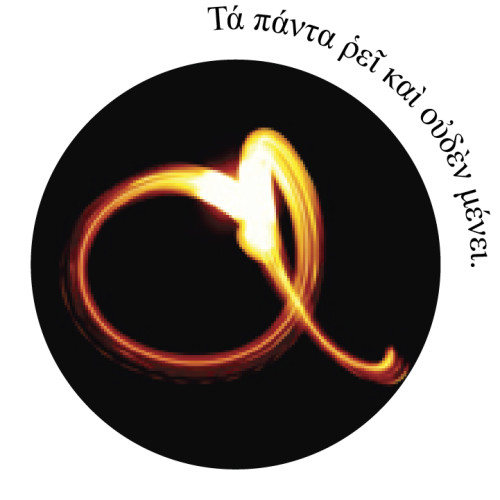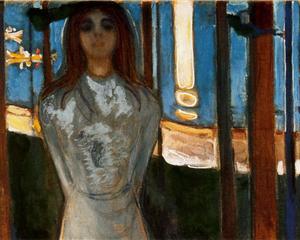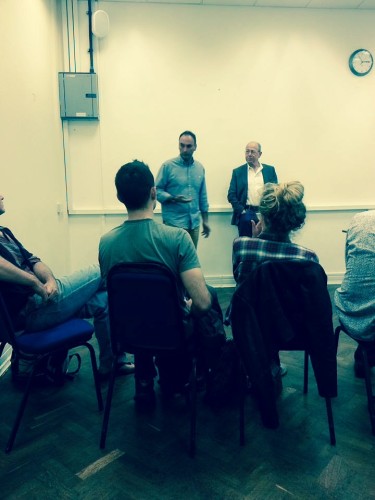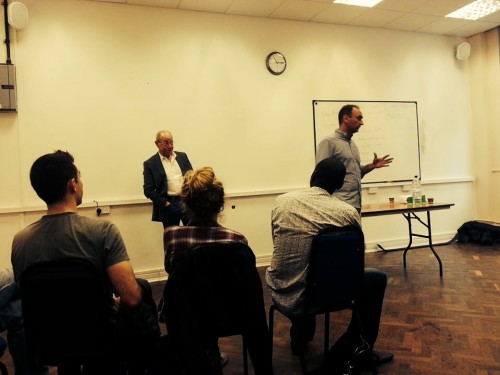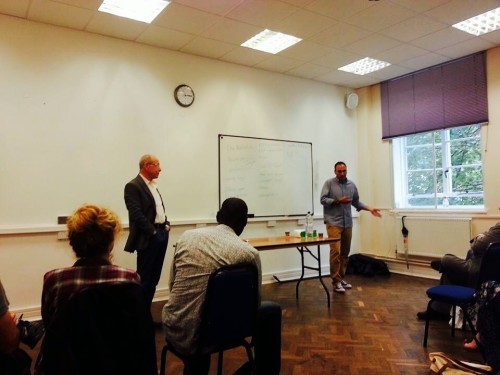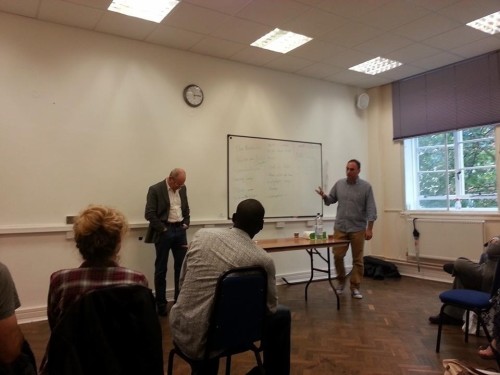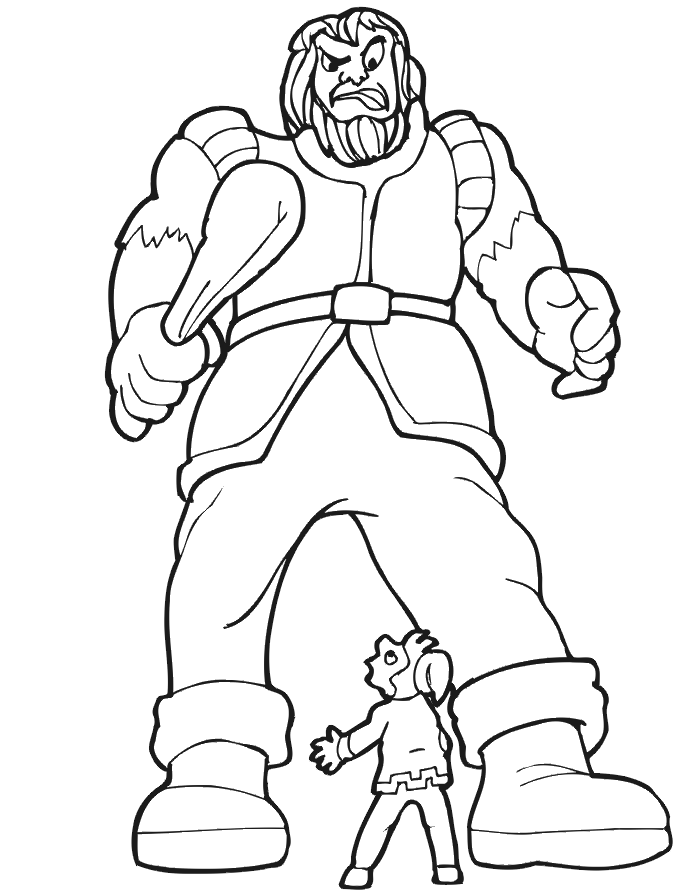
The boy threw the first eying on the colossal phantom, a giant- he was made of mud, in all odds a nonentity of double negation not to be compared with that divine mud by which God, integrating sand and saliva, has fashioned the protoplasts, the first one, Adam and not the madam as the word play has it. Between the giant’s toes he could play, the boy, within these obese extensions of a figure, brown and blue and with intentions not surely vicious; but a boy of this size and at this age perceives everything bigger, bigger, “Much much bigger” than himself as he used to sound in an echolalia, somehow scared of his own voice because a world, the world, is nothing more than a space of sensitivities and of a fantasy been repeated when these sensitivities have not faith to “A love without a name but not without a letter;” these were the boy’s words, and yet he played hide and seek with his gloomy shade flanked by the vacant seats of those corpulent toes- how erroneous is this statement: this, the misguided of this amusement and proclamation, the boy will determine alone much later in life, not during that time of his distraction because he was equipped with a sword, handmade and of good metal and embraced together, metal and flesh, by a strong handle suitable for a warrior or a knight without an armour besides his bravery and soul. He was not afraid of the creature’s size: he was heroic enough to encounter his nightmares, those sharpened and murdered into the, let us write, domain of the real world- that true and horrific actual horrendous liberty for those who still believe in myths of devotion and concern; and he was walking and running upon that small mournful prominence resembling a hill, from abaft which, in his dream, the giant has materialized his being but there was nothing excluding the sunlight darting invisible rays affecting one’s body, mostly at dawn or during the few moments of a dismal sunrise, and if this one in question was not a ghost; and the boy was not, not yet, a ghost- he will become one later when he will encounter the consecrated breath through which he will receive the map of the mission to use the spear of Longinus in opening living spaces for humanity, as part of his deal with one of the fairies who protected him- his own part of the symphonic covenant was to return his gift to the world.
Never, never; never had he saw the gigantic figure and yet he was always there, dust till dawn, with the sword at hand and ready for the challenge, until one day and moment the fairy called his name and posed the question why he was marching this same distance every single day when around him there were so many beauties of nature and of life, and most importantly herself, waving her being so many times in his passage akin to a fresh delightful inhalation: perhaps it was mandatory to eavesdrop his name, it is not certain, as of course the waves and duties of life; and the sword in hand was not stiff at the moment of the calling and not part of his hand, and his spirit calmed and became milder- the voice of the woman who knows how to whisper in the forests ought to have this affect on a man’s body and, from that incident and to the fore, he would seek this experience that he would forget for the times to come until the shadows will become fierce in the territories where he will choose to articulate the message, that which he will decode for those who have no bodies but can dance because they are twirling around the sceptre of the wind itself: he acknowledged, nevertheless, without any provocation and comparison and beyond any measurements of gallantry, that, although they were dancing they could not breathe not even a single phoneme and this is the reason they were unqualified of putting their bodies in the service of knighthood: as the boy did: “Slaves,” he mumbled, and tightened his weapon in his fingers once again until the next meeting with the fairy. And this is how he has killed the giant- by cognominating him a slave and deep inside him he had made a choice for bearing the cost of been a human: the Things of the domain of shadows command one to be courageous in order to love, to be fearless- this is the true birth of a hero: love is an act of bravery because it never redeems one from the angst of the cataclysm’s emptiness as it is cataclysm itself that forges one to tolerate its own love; this orientation is the one been initiated with the boy’s utterance as if in and within the chambers of a ominous mystery cult, and, from those sunlight hours frontwards, he would fade away in a long passage through the years and the Scene, in becoming the shade of himself, with, of course, disbursing the exact amount of the earth’s distance worth that each pilgrim has to pay: when it comes to these sort of expeditions, both Caesar and God ought to have their obols.
